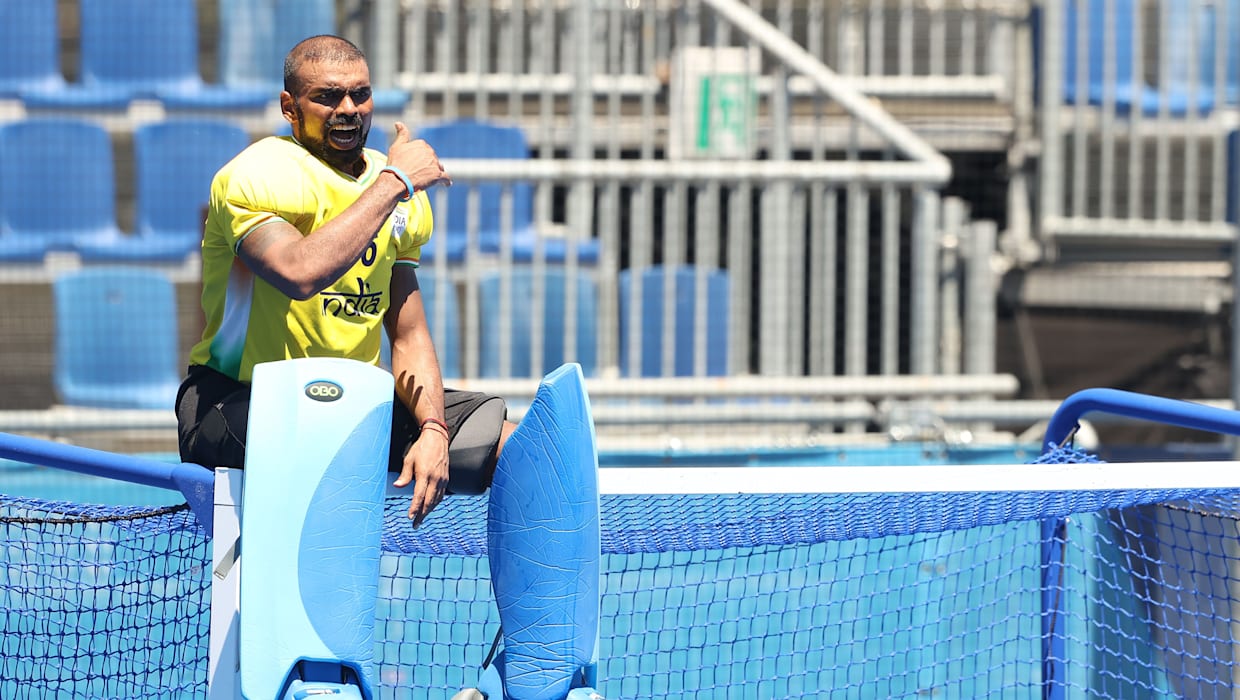News for 07 October 2021
All the news for Thursday 7 October 2021
2021 Test matches FRA v CHI (M) - 2nd Test
Wattignies et Lille (FRA)
5 Oct 2021 FRA v CHI 4 - 2
6 Oct 2021 FRA v CHI 1 - 0
FIH Match Centre
2021 Test matches IRL v MAS (M) - 2nd Test
Hillsborough (IRL)
5 Oct 2021 IRL v MAS 3 - 2
6 Oct 2021 IRL v MAS 2 - 4
FIH Match Centre
Malaysia bounce back to share series with Irish men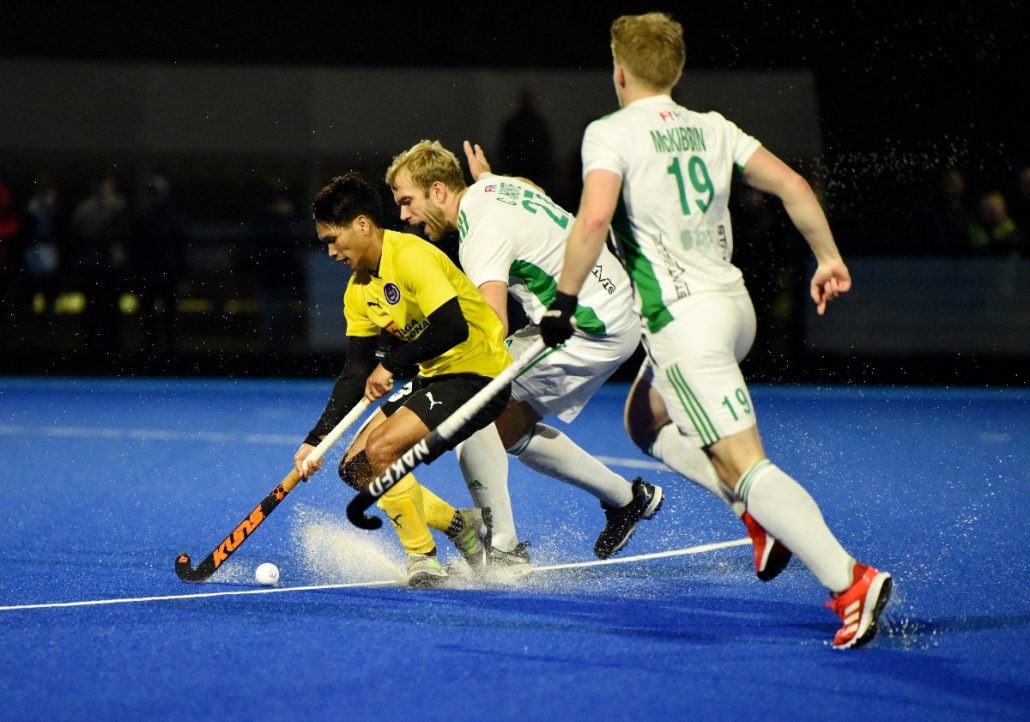
Picture: Billy Pollock
Men’s senior international
Ireland 2 (J Duncan, L Madeley) Malaysia 4 (R Rahim 2, A K Azrai, N Hassan)
Ireland had to settle for a shared series with world number 11 side Malaysia as a run of four goals in 11 minutes saw the Asian side prevail 4-2 at Lisnagarvey.
Both Malaysian teams stumble in Britain
By Jugjet Singh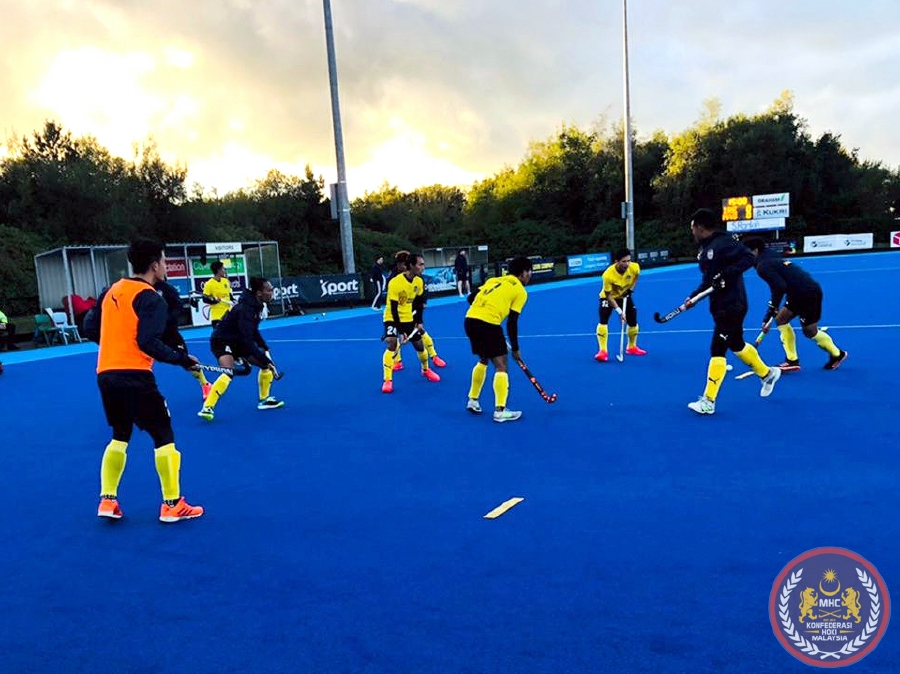
Malaysian players preparing before their international Test match against Ireland on Monday. -Pic courtesy of MHC
The Malaysian senior hockey team went down 3-2 to Ireland in an international Test match on Monday, losing valuable world ranking points.
Stars Awards: Olympic success wave continues for India
As a likely outcome of India Men’s first Olympic medal for 41 years, as well as the outstanding performance of the Indian Women’s team reaching the last four in Tokyo, India’s athletes and coaches dominate the FIH Hockey Stars Awards 2020-21. 
Every Indian nominated wins the first-ever democratic FIH Awards!
Every India player nominated and both foreign coaches with India’s Tokyo Olympic teams won the FIH Annual Star Awards. A clean sweep that neither do Indians would cherish nor the hockey world would accept, has occurred. The FIH has just released the winners.
Indian hockey players sweep FIH Stars Awards
Harmanpreet Singh and Gurjit Kaur were named the FIH Player of the Year in the men’s and women’s categories, respectively.
By Naveen Peter
Picture by Alexander Hassenstein/ Getty Images
Indian hockey players swept the 2020-21 edition of the FIH Stars Awards, the international hockey federation (FIH) announced on Wednesday. 
India sweep FIH Annual Hockey Awards, men's Olympic champions Belgium question the process
Harmanpreet Singh won the men's 'Player of the Year' award and Gurjit Kaur was recognised as the best player in the women's section.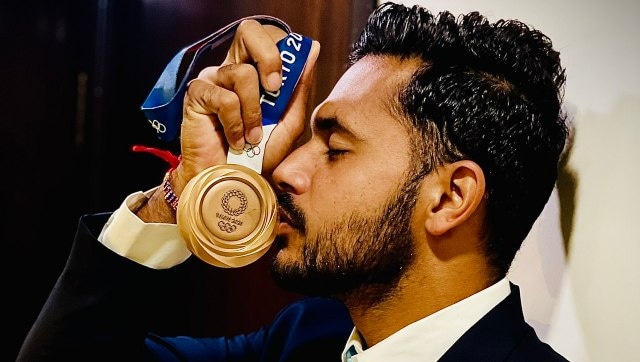
India's Harmanpreet Singh won the men's 'Player of the Year' award. Image: Twitter/@13harmanpreet
Lausanne: India swept the International Hockey Federation's (FIH) annual awards on Wednesday, claiming the top honours in all the categories based on a system of voting which was lambasted as a "failure" by men's Olympic champions Belgium.
Credibility at stake, FIH is exposing its lack of foresight
By Sandeep Nakai 
FIH Hockey Stars Awards became a sham after the more deserving Belgian players, who clinched the gold medal at the Tokyo Olympics, were completely ignored for the awards that allowed 25 per cent fan votes.
Pragmatism has never been the forte of the International Hockey Federation (FIH), which over the decades often resorted to fire-arm public relations to salvage its plummeting image.
Public Opinion – It Cuts Both Ways.
Ashley Morrison
“We live in a world where there is more and more information, and less and less meaning.” 
India drop bombshell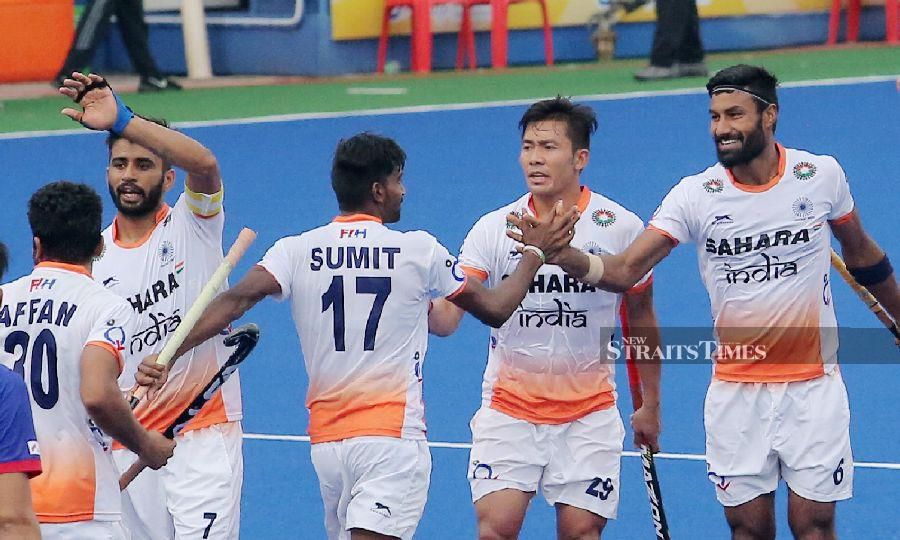
Hockey India says it will not take part in the 2022 Commonwealth Games in England. - NSTP file pic
NEW DELHI: India on Tuesday pulled its hockey teams out of the 2022 Commonwealth Games in England as the diplomatic row between the two countries over Covid-19 quarantine rules escalated.
CGF says in touch with HI
A day after Hockey India’s decision to withdraw from next year’s Commonwealth Games, the Commonwealth Games Federation has said that they are in touch with the Indian body and they will try to “understand and alleviate any concerns they have”.
Inaugural Men’s World Cup - Barcelona 1971
By Shahid Khan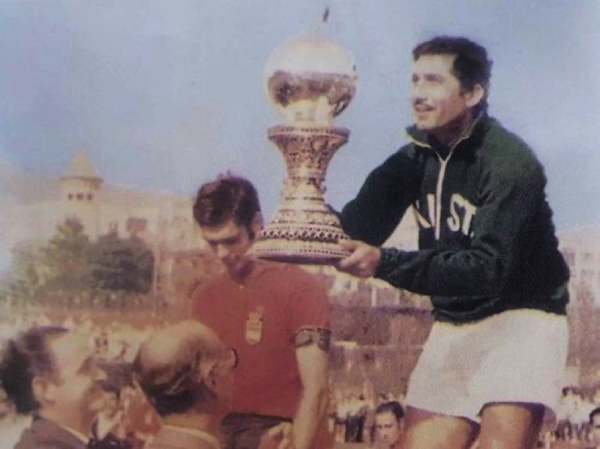
The triumphant Khalid Mahmood holding the World Cup
This month marks exactly half a century since the first Men’s Hockey World Cup tournament which took place from 15th to 24th October 1971 in Barcelona.
Serious lack of international activity up to late 1960s at which time a period of four years Olympic cycle was not keeping the growth engines sufficiently heated to promote the game across the global on consistent basis.
Furthermore, a flutter was caused in hockey when rumours gained circulation that hockey might be dropped all together from the Olympic Games.
Pat Rowley, the distinguished hockey journalist who at the time edited the FIH magazine, observed ‘Hockey developing worldwide had come out of its shell. It would no longer be just a guest at the Olympics, somebody else’s party.’
The concept of a world event for hockey initiated by Pakistan immediately engaged the interest of Frank Rene, the President of the Federation of International Hockey (FIH).
The question of finance, the all-important factor, was answered by Air Marshal Nur Khan, who happened not only to be the Chairman of Pakistan Hockey Federation (PHF) but also the Managing Director of Pakistan International Airlines. He offered to stage the first World Cup event in Lahore in 1971 and to pay the hotel and travel expenses of all the participating teams.
This financial proposal appealed to the FIH and with assistance of Pakistani Col. A.I.S Dara (Vice President of FIH) acting as negotiator on behalf of PHF it was decided to hold the inaugural 10-team World Cup in Lahore in February 1971. Incidentally the committee recommended the tournament to be held every two years.
The ultimate gesture of Pakistan was the donation of magnificent gold and silver running trophy for the winners. 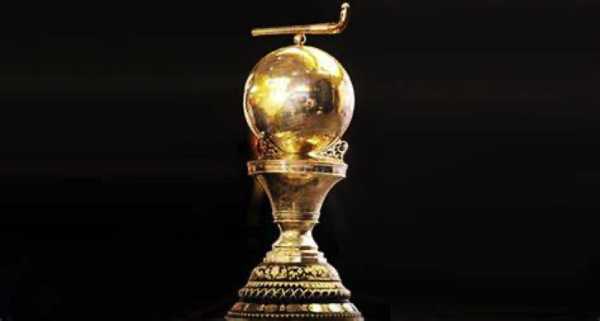
The magnificent Trophy donated by Pakistan Hockey Federation
Change of venue
When it came to staging the first World Cup in Lahore in 1971, unfortunately political issues intervened, and Pakistan reluctantly had to give up the right to stage the event. PHF’s request to postpone the event had been declined and the venue was switched to Barcelona to be held in October 1971.
The four top finishers in the inaugural European Cup would be joined by the top three from the 1970 Asian Games. Even the host nation, Spain and the 1968 Olympic Champions Pakistan were obliged to qualify.
No stone unturned for preparation
A year after being crowned Olympic Champions Green shirts had undertaken two major assignments. The first was a tour to 10 countries most of which were European destinations. Towards the late 1960s it was time when European teams along with Australia were beginning to make a mark. The sub-continent teams were facing tougher resistance than expected and at the Mexico Olympics Australia had beaten India.
Under the leadership of Brig. Asif who acted as the coach cum manager on the European tour the team played 23 matches, winning 21 whilst the other two were drawn.
Pakistan’s outstanding talent.
The other assignment during 1969 was an invitational Nine Nations Tournament held in Lahore in which the hosts fielded two sides - of the top 11 finishers which had appeared a year earlier at the Mexico Olympics only India, Holland and New Zealand were missing.
Such was the talent at Pakistan’s disposal that both teams reached the final and the senior team won by a solitary goal scored late in the game. The seniors secured success without conceding a single goal in their five outings whilst notching up 17 themselves.
The ‘junior’ Pakistan team’s performance was also outstanding as it defeated Kenya (a strong hockey nation at that time), Germany, France and Australia who had narrowly lost to Pakistan (2-1) in the final at the Mexico Olympics.
Pakistan enters as favourites.
Green shirts at the time of the first World Cup were Olympic and Asian Games title holders which they had secured at the Mexico Olympics (1968) and Bangkok Games (December 1970) respectively and were undoubtedly favourites to add another feather to their cap.
The stage was set for Real club de Polo, Barcelona to host the historic series to commence.
The ten participants were split into 2 groups. Group A consisted of Germany, Argentina, India, France and Kenya whilst Group B was made up of Spain, Japan, Nederland, Australia and Pakistan.
On the opening day Pakistan team led by Khalid Mahmood got away to an encouraging start with a 5-2 victory over Australia, snatching a 2-0 lead with Tanvir Dar converting two penalty corners. Although Richard Parry reduced the arrears through a penalty stroke, Abdul Rashid restored their 2-nil lead before half time. In the second half Don Smart latched on a rebound at a penalty corner after which Green shirts worked hard for a victory with penalty corner conversions by ace penalty corner striker Tanvir Dar.
In the next match Pakistan and Holland set up a chain of reactions which was to have far reaching consequences in later years. It resolved into a power struggle between two penalty corner experts, Pakistan’s Tanvir Dar and Holland’s Nico Spits. Each player excelled in this game with Tanvir Dar scoring a hat trick and Spits grabbed a brace. Pakistan were clinging precariously to a 3-2 lead eventually lost it when Paul Litjens scored to level the match 3-3.
Hope of a place on the semi-final for Green shirts were further jeopardised after a 3-2 defeat by Spain in a match marred by ill feeling and controversy. The hosts shot into a 2-0 lead. Tanvir Dar once again came to Pakistan’s rescue, converting a penalty corner before half time before spear head Abdul Rashid scored early in the second half. Thereafter the pace quickened, and Spain grabbed a winner through Juan Amat second penalty corner conversion for a 3-2 victory. 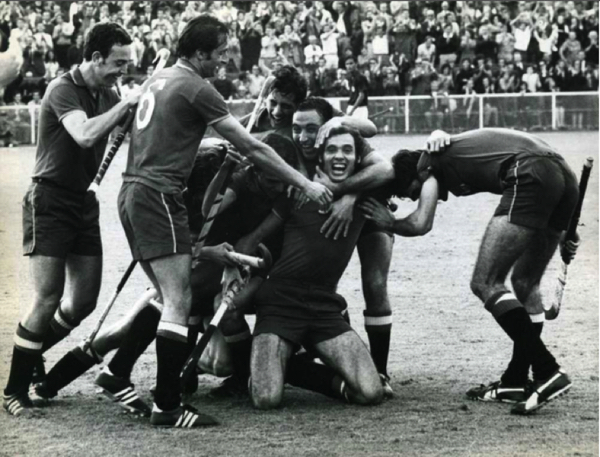
Spaniards celebrating their winner goal against Pakistan
Green shirts lodge protest.
The drama continued with Pakistan lodging a protest against the award of the decisive penalty corner by the English umpire Paddy Selman. But as the protest questioned the umpire’s judgment and did not raise a point of law. It was rejected.
It boiled down to Holland just needing a draw in their final pool match to eliminate Green shirts from progressing to the semi-final by finishing second in their group. However, Holland handicapped without their injured play maker Ties Kruise were surprisingly defeated 1-0 by Japan. This provided a lifeline for Pakistan as they were spared even a play-off against Holland which would have ensued if the match had ended in a draw.
Kenya surprise semi-finalists.
Meanwhile, India had finished top of their group with 1-0 victories against France, Argentina, Germany and 2-0 over Kenya, which meant a clash with Pakistan.
Kenya surprisingly managed to finish ahead of the rest and qualified for the first time and last time ever in a major in a semi-final as the concourse moved to Terrassa. A city 30 kilometres north of Barcelona.
The clash of the arch-rivals as usual drew a big following and India led by the great centre half Ajit Pal Singh, slightly had the better of the of the exchanges in the first half as they snatched the lead through Rajwinder Singh. Early in the second half Abdul Rashid brought the teams level after a slip in the Indian defence.
The match was decided in the 57th minute when Munawar Zaman scored a rising shot into the net from a penalty corner. Thus, Pakistan qualified for the final.
In the other semi-final the hosts Spain, defeated the surprise team of the tournament, Kenya with last gasp conversion of a disputed penalty corner during extra time by Jorge Fabregas. Kenya’s legendary captain recalling the controversial award said ‘this was extremely disheartening for the team as we were in touching distance of a podium finish’.
The scene moved to Real Club Polo, Barcelona for the final on the 24th of October on a pristine grass pitch. 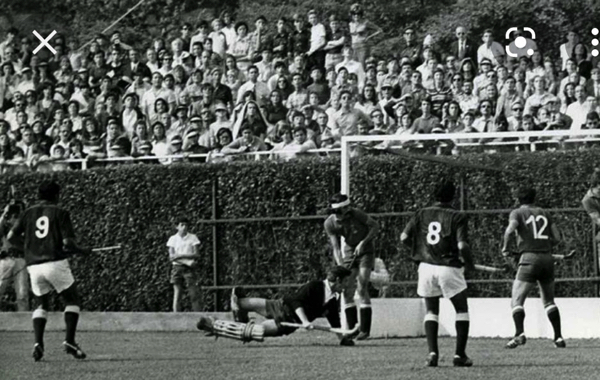
The final unfortunately lacked tingling tension of the previous encounter with the Spaniards after 10 days of exciting competition.
Pakistan on the attack in the final
Pakistan were without the services of two of their key players. Tanvir Dar, the top scorer of the tournament with 8 goals as well as inside forward Asad Malik who were side-lined with injuries.
Playing in front of a capacity home crowd in the early skirmishes the hosts failed to capitalise from a penalty corner. Green shirts also squandered two of their awards before Akhtarul Islam, Tanvir Dar’s replacement opened the scoring from a penalty corner with a well-placed shot in the 28th minute.
At the end of less-than-exciting second half in which none of these teams could do much, Pakistan lifted the inaugural World Cup trophy just as it had lifted the inaugural Asian Games trophy several years earlier.
Speaking to this scribe from his hometown of Lahore, Pakistan’s captain Khalid Mahmood, aged 79 now said ‘although half a century has passed the feeling of holding the impressive trophy aloft as winners was still very fresh in his memory’, he lamented at the politicians who had prevented them from achieving their great triumph on home soil.
Writing in the official account of the final, Pat Rowley stated that ‘hockey had reached the big time’.
To date 14 editions of the mega tournament have been held in 9 countries and Pakistan remain the most successful team with 3 additional titles to their name. There last success was at the 1994 World Cup (Sydney) and sadly they failed to qualify for the latest tournament in 2018.
Shahid Khan is senior sports freelance journalist and has covered all major hockey tournaments since 1997. During this time he has provided expert analysis on Reuters TV and BBC Radio Asia (Network).
Fieldhockey.com
Holcombe Hoping To Kickstart Vitality Women’s Premier Division Season Against Clifton Robinsons
The action is coming thick and fast in the Vitality Women's Hockey League with another exciting weekend of matches ahead of us.
Meet Hannah Pearce… The First South African to Captain Harvard’s Hockey Team!
Hannah Pearce is a young field hockey player who has taken her local talents to the USA and became the first South African to captain the women’s team at Harvard University.
by Brent Lindeque
Massachusetts, USA – Hannah Pearce is flying our flag high as the first South African captain of Harvard University’s distinguished hockey team.
Ohio prepares for critical weekend matchups against Bellarmine and Ohio State
By Darayus Sethna
Ohio University field hockey players fight against Western Michigan University for the ball during the home game on Friday, March 26, 2021 in Athens, Ohio. Photo by Kelsey Boeing | The Post
After a hard-fought 3-2 victory in double overtime against Davidson, Ohio has an opportunity to start a winning streak. However, they will have a quick turnaround. The Bobcats will host Bellarmine and travel to Columbus for a matchup with Ohio State over the weekend. 
No. 5 Field Hockey Travels to No. 4 Penn State Friday
Showdown between two top-5 teams starts at 4 pm on Friday in State College
PISCATAWAY, N.J. - A huge game is on tap this weekend for No. 5 Rutgers field hockey, as the Scarlet Knights face another top-five foe, taking on No. 4 Penn State this Friday on the road. The Scarlet Knights enter the weekend at 9-2 overall and 2-1 in the Big Ten.
No. 7 Maryland field hockey hopes to bounce back against No. 15 Virginia
Shane Connuck
Brooke DeBerdine contests a penalty corner during No. 7 Maryland field hockey’s 2-1 loss to No. 1 Iowa on Oct. 3, 2021. (Joe Ryan/The Diamondback)
Coach Missy Meharg was sitting on the bus with the No. 7 Maryland field hockey team on Wednesday.
Preview: No. 9 UNC field hockey looks to carry momentum against No. 22 Duke
By Joelle Dickens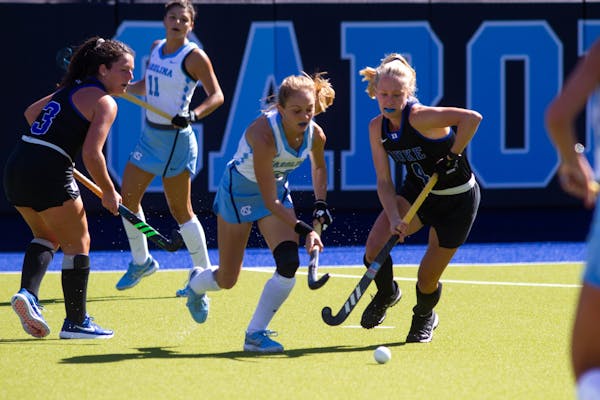
UNC field hockey players fight Duke players for the ball at the game on Sunday, Oct. 18, 2020. UNC won 5-4 in overtime. Photo by Abigail Pittman | The Daily Tar Heel
The No. 9 North Carolina field hockey team will go head to head with its rival, No. 22 Duke, at Karen Shelton Stadium on Friday. 
